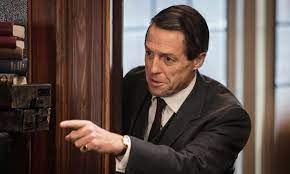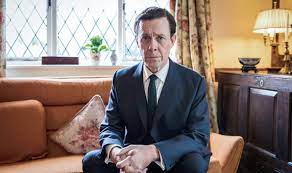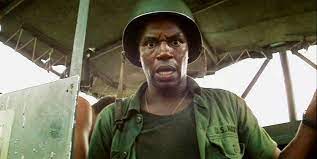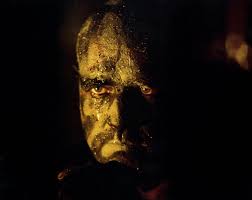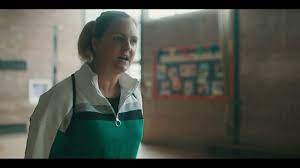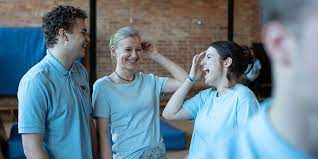The Sexual Offences Act 1967 legalising homosexual acts between men over twenty-one (in private only) was passed, in England in Wales, the year after England had won the World Cup and two years after the serving Liberal MP for North Devon, Jeremy Thorpe, and the serving Liberal MP for Bodmin, Peter Bessell, had confided in each other that they were "a pair of old queens".
Both considered themselves bisexual but whereas Bessell felt himself to be roughly 20% gay, Thorpe estimated an 80% preference for the same sex. In A Very English Scandal (BBC1/iPlayer, originally shown back in May and June of 2018 but now available again because its sequel, of sorts, A Very British Scandal, is airing) we revisit the story of how Jeremy Thorpe's political career was completely ruined because of the lies he told himself about his sexuality, the lies he told his colleagues about his sexuality, and because the society that he operated in held homosexuality as such a gross, transgressive, and taboo act he felt he had to.
There's also the not inconsiderable fact that he conspired to have his former lover, Norman Scott (though, sometimes, Norman Josiff) murdered. Directed by Stephen Frears, from a book by John Preston, and written by Russell T Davies it is played out, of course, as something of a romp, Murray Gold's score is alarmingly jaunty and the inclusion of such luminaries on the soundtrack as Alvin Stardust, Mud, Dawn, and Paper Lace takes you down nostalgic musical avenues rarely visited these days.
We begin with Labour's Harold Wilson in power, in a world of smoky dining rooms serving inedible looking food to grey men in grey suits. Jeremy Thorpe (an excellent Hugh Grant) is being blackmailed by his ex-lover Scott (Ben Whishaw) for the princely sum of £30. Flashbacks to their "very heaven" affair reveal Scott to be a naive and confused stable boy who makes up for what he lacks in confidence by retreating into fantasy worlds.
He is a confused young man with clear psychiatric issues. When he visits the House of Commons with his beloved Jack Russell, Thorpe shows him a kindness he is not used to, puts him up at his mother Ursula's (Patricia Hodge) nice country house, before moving him into something of a grace and favour property. Thorpe gives Scott James Baldwin's Giovanni's Room to read, calls him "little bunny", and asks him to get on the bed and bend over while he applies the Vaseline.
Which Thorpe calls "every bachelor's friend". Frears and Davies very much have their cake and eat it with A Very English Scandal. They're almost indulgent in showing how hard life was for a gay man in the sixties and seventies (words like buggers, queers, and poofters are bandied about freely and without fear of censure, and when Thorpe described himself as 'musical' it's not because he's a keen violinist) but, at the same time, it's always made abundantly clear that though Thorpe may be a victim of the era's homophobia he is, in every other way, very much the powerful, and guilty, party.
Thorpe and Scott enter a passionate, and risky (kissing on the bus, hand jobs opposite the House of Parliament), affair but as Thorpe's political career goes from strength to strength, and what I felt had parallels with the dysfunctional relationship between Joe Orton and Kenneth Hallliwell in another Frears' piece - Prick Up Your Ears, Scott begins to feel sidelined, abandoned, and Thorpe starts trying to bin him off.
When Thorpe tries to pack Scott off to France, Scott becomes angry and enters a state of denial in which he informs people he's been "infected with the virus of homosexuality". So Thorpe calls Bessell (Alex Jennings) in to do his bidding for him. Bessell will pay off Scott and Thorpe will be kept entirely out of it.
But Scott is too much of a loose canon and as Jeremy Thorpe rises to become leader of the Liberal party, we see Scott move to Dublin, overindulge in drink and drugs, and try and inform the police of his and Thorpe's affair. They're not interested. Thorpe falls into a relationship with Lyn (Michelle Fox) who sets him up a some kind of swinging Sixties Austin Powers figure from her boutique and when he lets her down too many times he ends up living in a caravan in Wales where he starts an affair with vulnerable young widow Gwen (Eve Myles).
Thorpe, for his part, enters into a sham marriage with the young and naive Caroline (Alice Orr-Ewing). They have a child, Rudolph, but Caroline, distressed after a call from Scott, has a fatal car crash in Basingstoke of all places. Later, Thorpe marries again. This time to the more formidable, and more worldly Marion (Monica Dolan) but Bessell and Thorpe's plan to pay Scott off and keep the story of their affair secret isn't working.
Scott, quite simply, won't stay quiet. So Thorpe and Bessell hatch a plan to go much further. They hatch a plan to have Scott killed but that plan, for various reasons, does not go well. A Very English Scandal tells the story of what went wrong with that plan and how that affected both Thorpe's and Scott's lives as well as the lives of very many people close to them.
I'd known a bit about this story for years, I was a child when it came to court and didn't really understand it, and though A Very English Scandal surely takes artistic license when it feels like doing so, it also does a very good job of taking us back to a time when Anthony Wedgwood-Benn (still his name then) could be summarily dismissed as a 'Trot', and a time when people were made to suffer so badly for their sexual preferences that their lives and the lives of their family could be destroyed on a whim.
A horrifically scabrous father of the bride wedding speech and a virulently homophobic judge, Sir Joseph Cantley (Paul Freeman), show how unenlightened the times were but A Very English Scandal doesn't dwell on that once it's made its point. There is humour too. Scott and Gwen making their caravan rock, and 8th Earl of Arran (David Bamber), and his house full of badgers, describing how he's received a parcel of shit, "human shit", through the post.
Arran's wife Fiona Gore (Susan Wooldridge) is good to, proudly beaming as her husband boasts of her having power boat racing skills to rival Donald Campbell. Credit too should go to Blake Harrison as bungling hitman Andrew 'Gino' Newton, Michele Dotrice (Betty in Some Mothers Do' Ave Em) as Edna Friendship - a landlady that looks after Scott, Peter F Gardiner as David Steel, Paul Hilton as David Holmes - a slightly daft accomplice of Bessell and Thorpe, and the always excellent Jason Watkins as Emlyn Hooson, a Welsh Liberal who covets Thorpe's job.
Arran actually gets the most passionate speech in the entire piece when he speaks movingly about young gay men killing themselves. It's not suicide he says, it's murder. Murder by the laws of the land. That Stephen Frears and Russell T Davies have told a story about such a bleak time in our history and still filled it with laughter and capers does not detract from A Very English Scandal but simply adds to its power. I'll watch A Very British Scandal soon. It'll do well to be as good.




